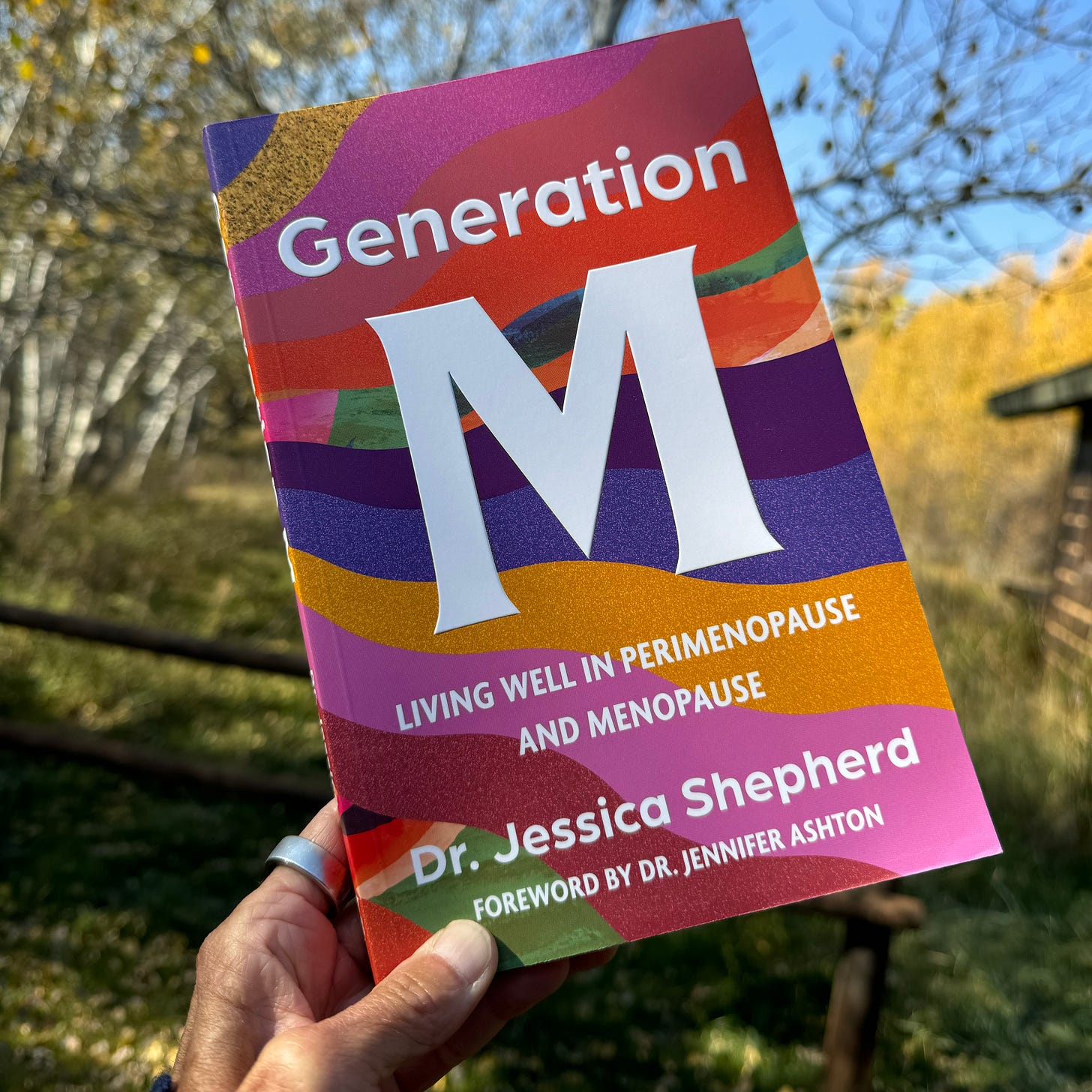Why Getting Vaccinated May Be Good For Your Brain
How you can reduce dementia risk by avoiding COVID, shingles, and the flu
Hello, Brain Health Ambassadors. I am writing to you as we wrap up the Brain Health Retreat in Western Sicily. Besides visiting must-see treasures like the Greek temple at Segesta we’ve been meeting with Sicilians, often in their homes, to cook traditional recipes, share a meal, and learn from their elders. All the while we are learning how to cultivate our own brain health and bring a little of the Mediterranean vibe back home. Here are a few highlights.









Want to join me on my next Brain Health Retreat in Italy? I’ll be headed to Puglia in April and Sardinia in May (2 spots left). Or, join me in January for this Brain Health Retreat in Costa Rica (I have one casita left).
Before traveling to Italy, I popped into my local pharmacy for a few vaccinations. I am always concerned about being exposed to respiratory viruses when I travel—COVID, of course, but also influenza, RSV, and the common cold. So while I have no problem wearing a mask, especially on long haul flights, I am also proactive about avoiding viruses by washing my hands, wiping down plane surfaces, and making sure my vaccines are up-to-date.
Today we are talking about vaccines and the impact they may have on dementia risk. While the brain fog and headaches that come with the flu aren’t great for your short-term brain health, researchers are tracking whether repeated bouts of viral and bacterial illnesses (like the flu and COVID) may actually increase one’s risk for Alzheimer’s.
Of all the reasons to avoid getting sick—time off work, serious health outcomes, and that miserable flu-like syndrome—keeping your brain healthy could be the most important one. And did you know that if you are well rested when you get vaccinated, your body is more likely to mount a robust immune response? More on that, below. Plus, today is the last day to enter my book giveaway and win a copy of Generation M: Living Well in Perimemopause and Menopause by Dr. Jessica Shepherd. Details below.
The first newsletter of the month is always free. Feel free to share!
The Takeaways for Brain Health
Certain infectious illnesses fuel acute and chronic inflammation in the brain. Avoiding these illnesses, over the course of a lifetime, may protect the brain from Alzhemer’s and other dementias.
Vaccinations against influenza, pneumonia, and shingles have solid data to say they may reduce dementia risk.
The data pertaining to COVID-19 vaccinations and brain health is still evolving. Getting vaccinated against repeated bouts of COVID-19, however, will probably end up being a huge boon for reducing dementia risk.
Vaccines work better if your body is well rested—giving you protective antibodies for up to two weeks longer.
The link between the flu and Alzheimer’s
A Canadian study back in 2001 was one of the first to consider the long-term brain health benefits from being vaccinated against the flu and other viral infections like diphtheria, tetanus, and poliomyelitis. After another study found no correlation, the issue went mostly ignored for decades. Then, at the 2020 Alzheimer’s Association International Conference, a group of researchers presented a paper that found the more influenza vaccines one receives over time, the lower the risk of Alzheimer’s and other types of dementia.
Researchers tackled the topic in 2022 with this study of more than 900,000 participants over age 65, matched for all confounding factors. The flu-vaccinated adults were found to be 40% less likely than unvaccinated adults to be diagnosed with Alzheimer’s in the next 4 years.
Studies like this make you wonder if it’s the vaccine that’s truly protective. Or, are people who embrace preventive medicine and have better access to health care also more likely to get vaccinated? And still, there are now a large number of studies looking at the brain impact of vaccinations.
All the large studies I reviewed are aligned with this trend: the more vaccines one gets throughout life, the lower the risk of Alzheimer’s and other dementias.
How much more? Most studies show reductions in the 20 to 40% range—far more than any of the latest amyloid-blocking drugs.
Here’s my best guess at what’s going on: It’s not the vaccine itself that’s brain-protective, but its ability to help one avoid repeated bouts of flu-like illnesses. Each time you come down with one of these infectious illnesses—and the brain fog and headaches that come with it—inflammatory particles flood the brain. While most people recover completely, there may be a cumulative effect on the brain from repeated infections throughout life. Perhaps this fuels the accumulation of amyloid plaque, contributing to the same background of chronic inflammation in the brain that’s also found in Alzheimer’s? A lot of the research is pointing this way but further study is needed.
Other vaccines and brain health: shingles, pneumonia, and COVID-19
The argument that vaccines may protect against neurodegenerative diseases gets more compelling when you look at vaccines besides the flu. In a nutshell:
Shingles vaccination. Herpes viruses, particularly the one that causes shingles (varicella-zoster virus, or VZV), have been implicated in Alzheimer's and Parkinson’s pathology. In a 2024 meta-analysis of five studies looking at shingles vaccine and dementia, researchers found a significant reduced risk across the board. Vaccination against herpes viruses might reduce this risk by limiting viral reactivation and chronic neuroinflammation.
Pneumonia vaccine. Bacterial illnesses like pneumococcal pneumonia have also been implicated with contributing to chronic inflammation in the brain. In this 2020 study published in Alzheimer’s & Dementia, receiving the pneumococcal vaccine between ages 65–75 was associated with a 40% reduced risk of Alzheimer’s disease, especially in those who did not carry the ApoE4 allele, a genetic risk factor for Alzheimer’s.
COVID-19 vaccine. There is growing evidence that COVID-19 infections accelerate cognitive decline in older adults. This risk appears to be linked to several factors associated with the virus, including how it fuels inflammation in the brain both directly and secondary to other effects in the body. Repeated bouts of COVID-19 may further increase this risk due to cumulative damage or persistent inflammation. While studies are still ongoing, vaccination against COVID-19 could have a substantial impact on the risk of Alzheimer’s and dementia over time. The vaccines have been shown to reduce two COVID situations strongly linked to cognitive impairment—severe illness requiring hospitalization and long COVID.
Get a good night’s sleep before your vaccine appointment
There’s a strong argument for timing your vaccine for when you are well-rested. A 2023 meta-analysis from the University of Chicago found that inadequate sleep (less than six hours) before vaccination can reduce the production of protective antibodies. Good sleep not only amplifies but may also extend the efficacy of the vaccine—giving you up to an extra two months of protection.
Here’s what I’m doing
Even though I am at low risk for complications arising from influenza or COVID-19 (I am under 65 and have no chronic medical conditions), I get my flu shot each October and a COVID booster whenever it becomes available. I am planning to get the newest shingles vaccine (Shingrax) when I’m home in November. If I haven’t been sleeping well, I’ll put off getting a vaccine until I feel well-rested. And while I may be one of the few people on a plane wearing a mask, I will continue to do so. Masking reduces the risk that I’ll become infected with COVID, influenza, or one of the nasty common cold viruses that have come back with a vengeance post-pandemic.
If you do end up getting the flu, you know the drill: rest, hydration, and lots of brain- and immune-supporting foods. And that means soup. I’ll be back next week with a round-up of some of my favorites.
I’m curious to know: Do you get the flu shot every year? Are you planning on getting the latest COVID booster?
Last day to win a copy of Generation M
Today is the last day to enter to win a copy of Dr. Jessica Shepherd’s new book Generation M: Living Well in Perimenopause and Menopause. Find all the details in last week’s post, below.
That’s all for today. I’ll be back next week with those soup recipes. Until then, thank you for reading, subscribing, sharing, and taking the best care of your brain.
Love,
Annie







The Covid immunization caused severe inflammation in just about every part of my body. This happened immediately after receiving the second shot. My best friend lost hearing immediately after. Katie didn't have any problems with her hearing just prior to this vaccination, and this occurred immediately after. Her ENT told her he was seeing many people that had the same thing happen after the second shot. My aunt had been receiving flu shots for years with no adverse results, until the last one when she immediately lost the ability to do much of anything and I became her caretaker for two years until she started to somewhat recover. Immunizations can be very good at prevention but one must also be aware of the problems they can cause.
I’ve gotten my flu and Covid. This month I turn 65 and plan to get Shingles and RSV. I sometimes have a slight reaction to the flu shot but nothing major. I always take an antihistamine and Tylenol before my shot. Seems to keep reactions at bae!
Can’t email for soup recipes!